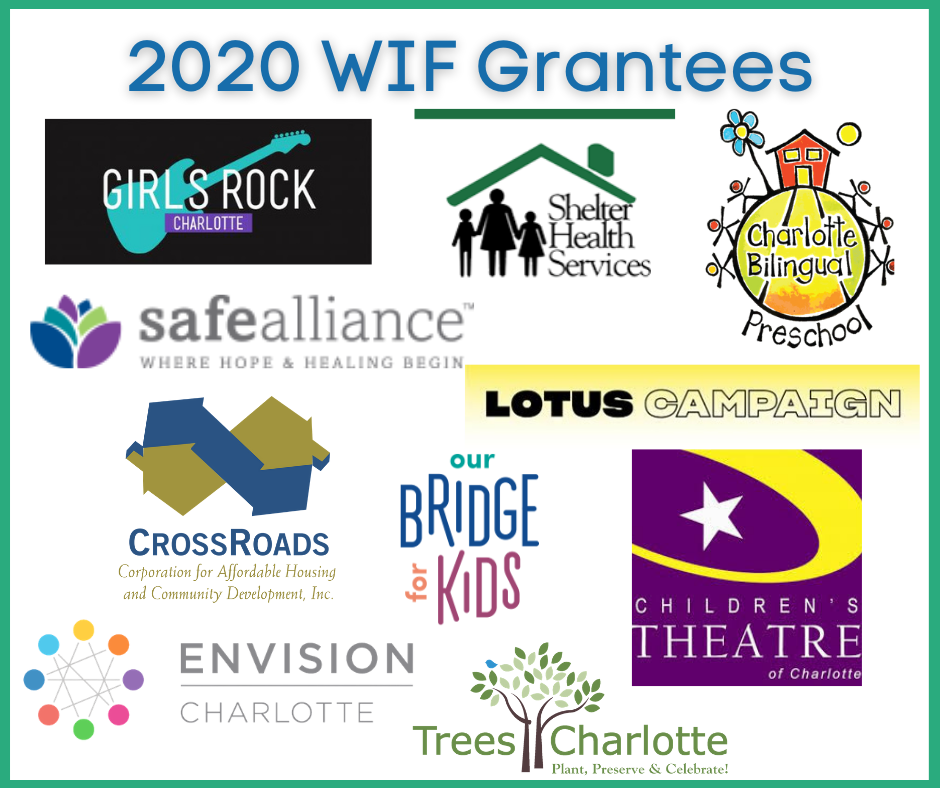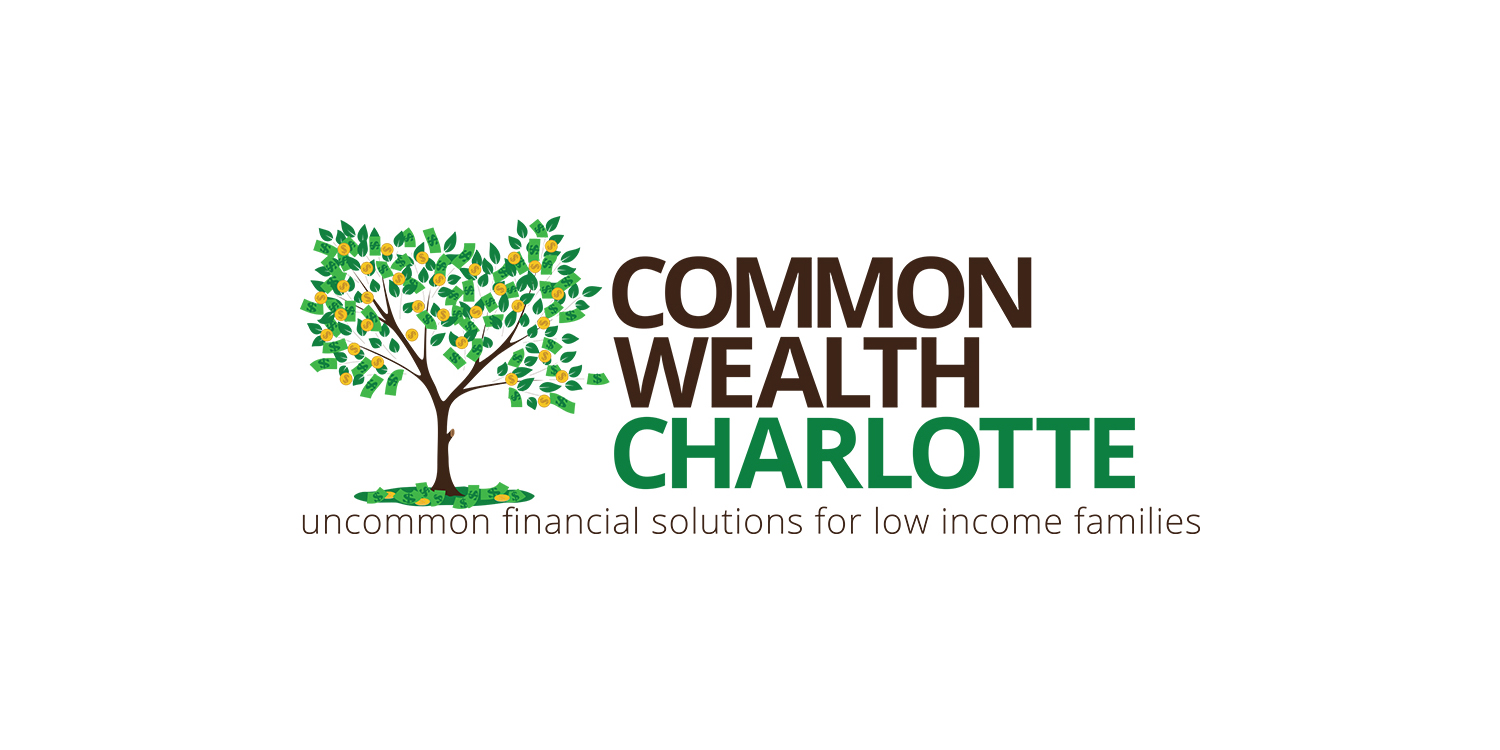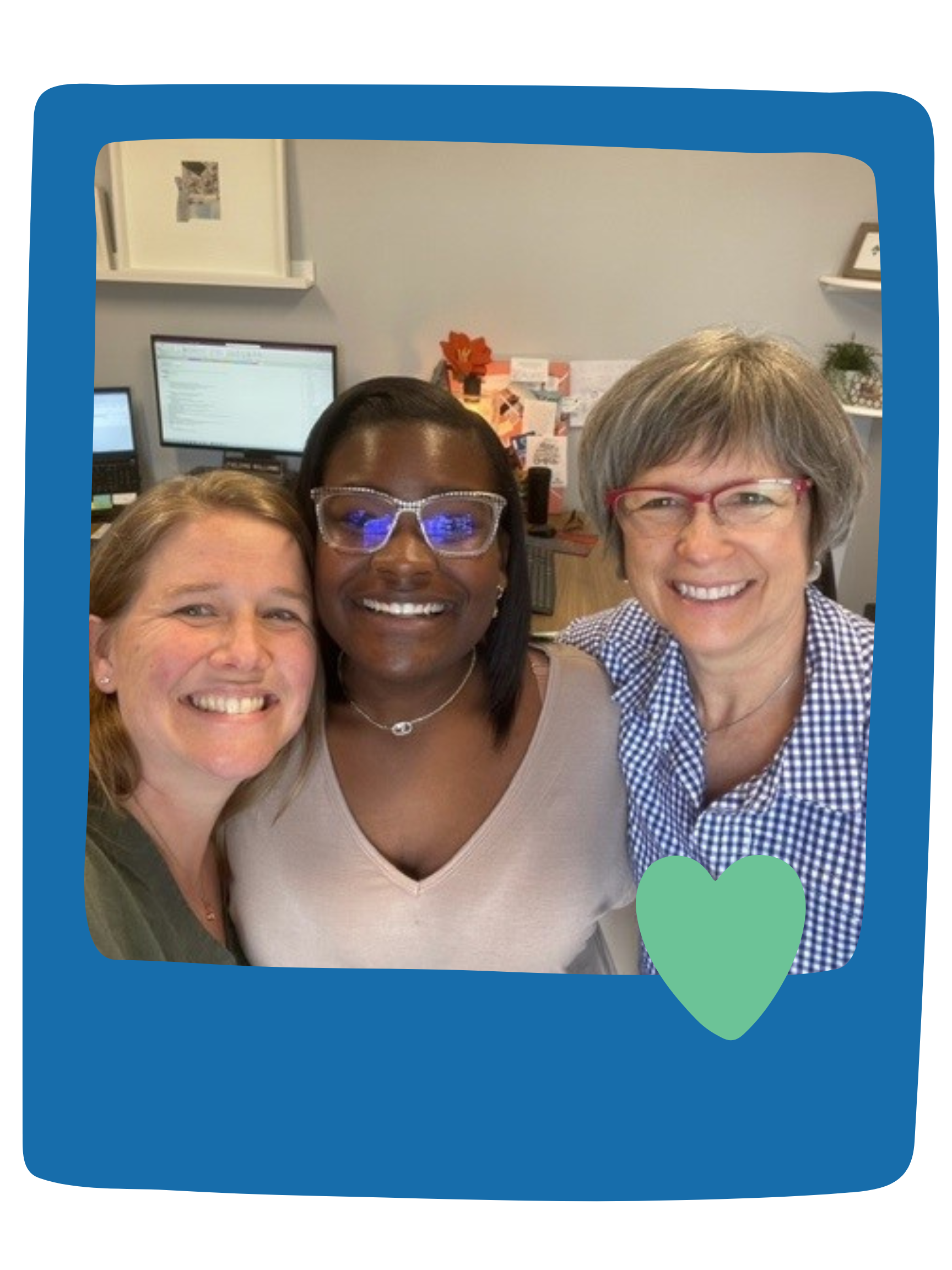
Charlotte Bilingual Preschool (CBP): $50,000
 At the time of the WIF grant, the CBP families and the Latin community were feeling disenfranchised, isolated, and left behind. That Women’s Impact Fund gave support and inclusion at a time when the community was suffering emotionally had a tremendous impact. CBP and their families have felt a reinvigorated sense of kinship with the support of the WIF organization.
At the time of the WIF grant, the CBP families and the Latin community were feeling disenfranchised, isolated, and left behind. That Women’s Impact Fund gave support and inclusion at a time when the community was suffering emotionally had a tremendous impact. CBP and their families have felt a reinvigorated sense of kinship with the support of the WIF organization.
CBP families and the Latin community have been disproportionately impacted by COVID-19, and many are ineligible for relief programs due to immigration status – many food pantries require documentation and families are afraid to ask for help if undocumented. In response to these challenges, CBP deployed WIF funds (along with other funds) to support the following:
- Remote Learning: In 2020 CBP provided 60 families with technology items (laptops, mobile hotspots, etc.)
- Hot Meals, Groceries, and Infant Formula: In 2020 CBP provided over 10k hot meals and over 2k bags of groceries in partnership with local organizations.
- Preparation of the CBP facilities for reopening in compliance with COVID guidelines to protect students and staff.
- Hiring of a full-time researcher and evaluation director
Children’s Theatre of Charlotte: $25,000
 CTC continues to assess how best to serve the community and meet the needs of young people during the pandemic. As a performing arts organization, a key challenge is to find the balance between offering online and in-person activities.
CTC continues to assess how best to serve the community and meet the needs of young people during the pandemic. As a performing arts organization, a key challenge is to find the balance between offering online and in-person activities.
The unrestricted funds were used for general operating funds which in part went to purchase equipment that enables CTC to extend their virtual reach and go fully virtual if needed. In addition, they were able to hire a film crew and videographer to create four productions for schools. CTC emphasized the positive impact of employing crew members who would have been otherwise out of work.
The grants support of general operating funds helps CTC keep all full-time staff employed to date. The CTC staff responded to the challenges of the year by performing many jobs that would have been done by subcontracted labor – everything from building sets to taking temperatures.
When CTC learned that schools would not meet in person, they offered 10 weeks of mini-camps for kids. The camps included supervision during the virtual school day and supplemental theater-related enrichment activities. CTC continues to offer both virtual and live learning opportunities.
CrossRoads Corporation for Affordable Housing and Community Development Inc.: $25,000
 Some of the funds were used to pay 6 local high school students to work as summer camp counselors at Camp Grier Heights. This first-time job opportunity not only filled a need for camp counselors at the camp, which is supported by CrossRoads but also provided job and economic experience for the counselors. Workplace rules, expectations, and leadership opportunities were provided for the young counselors in addition to lessons in opening bank accounts and filling out employment forms.
Some of the funds were used to pay 6 local high school students to work as summer camp counselors at Camp Grier Heights. This first-time job opportunity not only filled a need for camp counselors at the camp, which is supported by CrossRoads but also provided job and economic experience for the counselors. Workplace rules, expectations, and leadership opportunities were provided for the young counselors in addition to lessons in opening bank accounts and filling out employment forms.
This Fall the funds were crucial to pay for food and educational support. Due to the current pandemic, remote learning has incurred unexpected expenses. Some of the WIF funds were used to hire part-time staff to support students learning on CrossRoads computers in the Grier Heights community center. Funds were also used to provide breakfast, lunch, dinner, and snacks for 50 children since school started.
Working with WIF helped to organize and identify internal needs in an unusual year. Many of CR’s community partners are or have been affiliated with WIF at some time. The WIF brand is a positive endorsement for any organization.
Envision Charlotte: $50,000
 The Precious Plastics Lab is a great story of pivoting during the pandemic! Envision Charlotte started a program recycling takeout containers and turning them into Personal Protective Equipment (PPE) – primarily face shields. A plastic shredder turns takeout containers into filament, which is then used in 3D printers to make PPE. Care facilities have been the biggest contributors to plastic takeout containers due to their change away from plating food during COVID. Envision Charlotte is also a finalist in Barcelona for this PPE program!
The Precious Plastics Lab is a great story of pivoting during the pandemic! Envision Charlotte started a program recycling takeout containers and turning them into Personal Protective Equipment (PPE) – primarily face shields. A plastic shredder turns takeout containers into filament, which is then used in 3D printers to make PPE. Care facilities have been the biggest contributors to plastic takeout containers due to their change away from plating food during COVID. Envision Charlotte is also a finalist in Barcelona for this PPE program!
Innovation Barn: A partnership between Envision Charlotte and the City of Charlotte and will be the educational ground zero for Circular Charlotte: https://envisioncharlotte.com/innovation-barn/
Precious Plastics Lab @ the Innovation Barn: Precision Plastics Lab is open to the public. They can prototype items reusing plastics to convert into new products: https://envisioncharlotte.com/plastics/
Girls Rock Charlotte: $25,000
 GRC used half of the grant to support virtual programming over the summer since they could not host in-person sessions. The grant was mainly used to give small stipends to the volunteer teachers and musicians that created video instructional content and hosted Zoom camps. All online programming was offered free of charge. The instructional videos created this summer, especially for the film camp, will be used next year and will help them be able to spread the film camp to other Girls Rock locations. They also had many new campers this year since they could accommodate more online than in person.
GRC used half of the grant to support virtual programming over the summer since they could not host in-person sessions. The grant was mainly used to give small stipends to the volunteer teachers and musicians that created video instructional content and hosted Zoom camps. All online programming was offered free of charge. The instructional videos created this summer, especially for the film camp, will be used next year and will help them be able to spread the film camp to other Girls Rock locations. They also had many new campers this year since they could accommodate more online than in person.
They have put aside the other half of the grant for next year. The big financial challenge facing them next year is replacing the Spirit Square space that they had been able to utilize. Spirit Square will be partially demolished as part of the Main Library redevelopment. GRC would like our assistance with any ideas for a new summer location or partnership!
Lotus Campaign: $25,000
 The Lotus Campaign has used some of the funding to develop an Eviction Prevention Program (created to respond to COVID) with two of their partners – Ginkgo Residential and Charlotte Family Housing.
The Lotus Campaign has used some of the funding to develop an Eviction Prevention Program (created to respond to COVID) with two of their partners – Ginkgo Residential and Charlotte Family Housing.
The Eviction Prevention Program pilot has so far helped more than 275 people into housing at a cost of less than $800 per person per year.
To create this program, Charlotte Family Housing expanded the scope of its services to include families at high risk of becoming homeless, Ginkgo Residential increased the number of units available, and Lotus increased its emphasis on those in imminent danger of homelessness.
The Lotus Campaign plans to use remaining grant funding for housing placements for 30 to 45 individuals – following the end of COVID eviction moratoriums and other rent relief programs.
ourBRIDGE for KIDS: $25,000
 As of December 31, 2020, they have distributed 136,562 culturally appropriate meals and nearly 1200 CMS Meal Bundles, which includes enough milk and produce for a child for a week.
As of December 31, 2020, they have distributed 136,562 culturally appropriate meals and nearly 1200 CMS Meal Bundles, which includes enough milk and produce for a child for a week.
ourBRIDGE’s approach to pivot effectively while centering their efforts in the community and the families over their goals and plans for the year, has been widely recognized, locally and nationally. Their Executive Director was awarded the 2020 Dr. Nish Jangotch Jr. Humanitarian award, and ourBRIDGE was featured in The New York Times!
On November 2nd, they opened their doors as a CMS Remote Learning Site. They welcomed back one hundred students who attend twice per week from 8 am to 4 pm. Unfortunately, because of COVID safety measures, this year they are not able to provide transportation, a much-needed service for families that don’t have the means to drop off and pick up their children from our center. They decided to continue providing meals to these families, checking in with them often, and being always responsive when they ask for help, even if their children are not attending ourBRIDGE this year.
It is important to highlight that COVID-19 is disproportionately affecting communities of color, exacerbating the inequality and lack of access and resources to basic needs available. Mecklenburg County COVID-19 data for December 6th, shows that the east side where ourBRIDGE operates has by far the highest numbers of COVID-19 cases. From the 110 households that ourBRIDGE surveyed in May, 80% of them have lost at least one source of income. Many of the families they work with are undocumented and therefore, did not qualify for, or receive: the Federal Relief Stimulus check, Unemployment, Families First Coronavirus Response Act (FFCRA), or the Coronavirus Aid, Relief, and Economic Security (CARES) Act benefits. Health insurance and access to information about COVID-19, in languages other than English, have been inaccessible.
“Being a grantee from WIF is definitely a point in our favor when applying for other grants, moreover, we are thankful for being exposed to a vibrant, dedicated network of women who care for the deep issues and challenges affecting our communities. We are especially thankful for the flexibility and trust we received from WIF during the summer of 2020.”
Shelter Health Services: $50,000
 Due to the unrestricted funding, Shelter Health Services was able to implement clinic changes due to COVID-19. They were able to successfully provide healthcare and medical services to relocated clients staying in 11 motels dispersed throughout Charlotte, to 354 unique clients – totaling 1,581 clinic visits from July 1 to December 31, 2020.
Due to the unrestricted funding, Shelter Health Services was able to implement clinic changes due to COVID-19. They were able to successfully provide healthcare and medical services to relocated clients staying in 11 motels dispersed throughout Charlotte, to 354 unique clients – totaling 1,581 clinic visits from July 1 to December 31, 2020.
Proactive telemedicine and telehealth calls to clinic clients and a Pop-Up Clinic at the Super 8 motel to provide in-person care were the primary contact points. Center of Hope residents staying at other motels were provided bus passes to get to the Super 8 Pop-Up clinic. Tent City (homeless camp in downtown Charlotte) women and children housed at the Super 8 by the county were also allowed access to the clinic. Abbott ID Now rapid testing provided flexibility and mobility in monitoring COVID-19.
The original grant application was for the Orthopedic Pain Management Program, which allows clinic clients to become pain-free and able to find and keep employment, achieve self-sufficiency, leave homelessness, and live a better quality of life. Some of the funding has been utilized to keep the program going, on a limited basis, and has provided care to 44 women through December.
Safe Alliance: $50,000
 Safe Alliance is very thankful for the unrestricted WIF funds, as it allowed them to pivot quickly (because other funds they had were restricted to food, etc.). They were able to get PPE & cleaning supplies for their housing and have already spent 40K on technology (laptops and webcams) so their staff can work remotely and support clients – which wasn’t something they were outfitted to do before.
Safe Alliance is very thankful for the unrestricted WIF funds, as it allowed them to pivot quickly (because other funds they had were restricted to food, etc.). They were able to get PPE & cleaning supplies for their housing and have already spent 40K on technology (laptops and webcams) so their staff can work remotely and support clients – which wasn’t something they were outfitted to do before.
A few other impacts Safe Alliance has seen this year:
- While their court program was shut down through September 2020, they were able to address a backlog of child custody and other issues and give more extensive support to clients that way.
- Their hotline saw a 45% uptick from people needing support as well as increased call length because they had to address what to do in COVID-19 restricted world.
- Unfortunately, they had to reduce capacity in their housing program, but they were able to pivot quickly to hotels and staff those areas as needed. They learned a lot over time about what staffing they needed and were able to move more independent clients (who needed less support) into the hotels. They added support for virtual learning to this program as well because there are typically 40-60 kids in the housing at any given time.
- Their counseling & support services for sexual assault victims were able to go virtual, and it is giving their clients more options for how they want to get counseling.
TreesCharlotte: $25,000
 Unrestricted funds granted to TreesCharlotte were used to host the 9/25/20 First-timers Tree Store & the 9/26/20 Opening Day Citywide Tree Store, presented by Women’s Impact Fund.
Unrestricted funds granted to TreesCharlotte were used to host the 9/25/20 First-timers Tree Store & the 9/26/20 Opening Day Citywide Tree Store, presented by Women’s Impact Fund.
https://treescharlotte.org/volunteer/neighborhoods/treestores/
455 trees were distributed to community members free of charge at the two events. Events were held at City Landscape Management at Tuckaseegee Road, as part of TreesCharlotte’s partnership with the City of Charlotte.
Funding was also used to implement COVID precautions for these Tree Store events. This included the purchase of masks, hand sanitizer, and antiseptic spray for tools. TreeCharlotte also utilized online scheduling for community members to select tree preferences and designate time slots to pick up trees. The time span of Tree Stores increased from 90 min pre-pandemic to 3 hours to allow for distancing. Additionally, paid employees managed the events rather than volunteers.
TreesCharlotte identified a silver lining to utilizing online scheduling: The Tree Store used to be first-come, first-serve. Now, those coming to get trees can research in advance, reach out to arborist to ask questions, be more thoughtful in tree selection, and watch online videos describing planting and care. This is a benefit of the new process which they plan to keep going forward. They also find lower tree waste with pre-registration selection and scheduling!






Leave a Reply